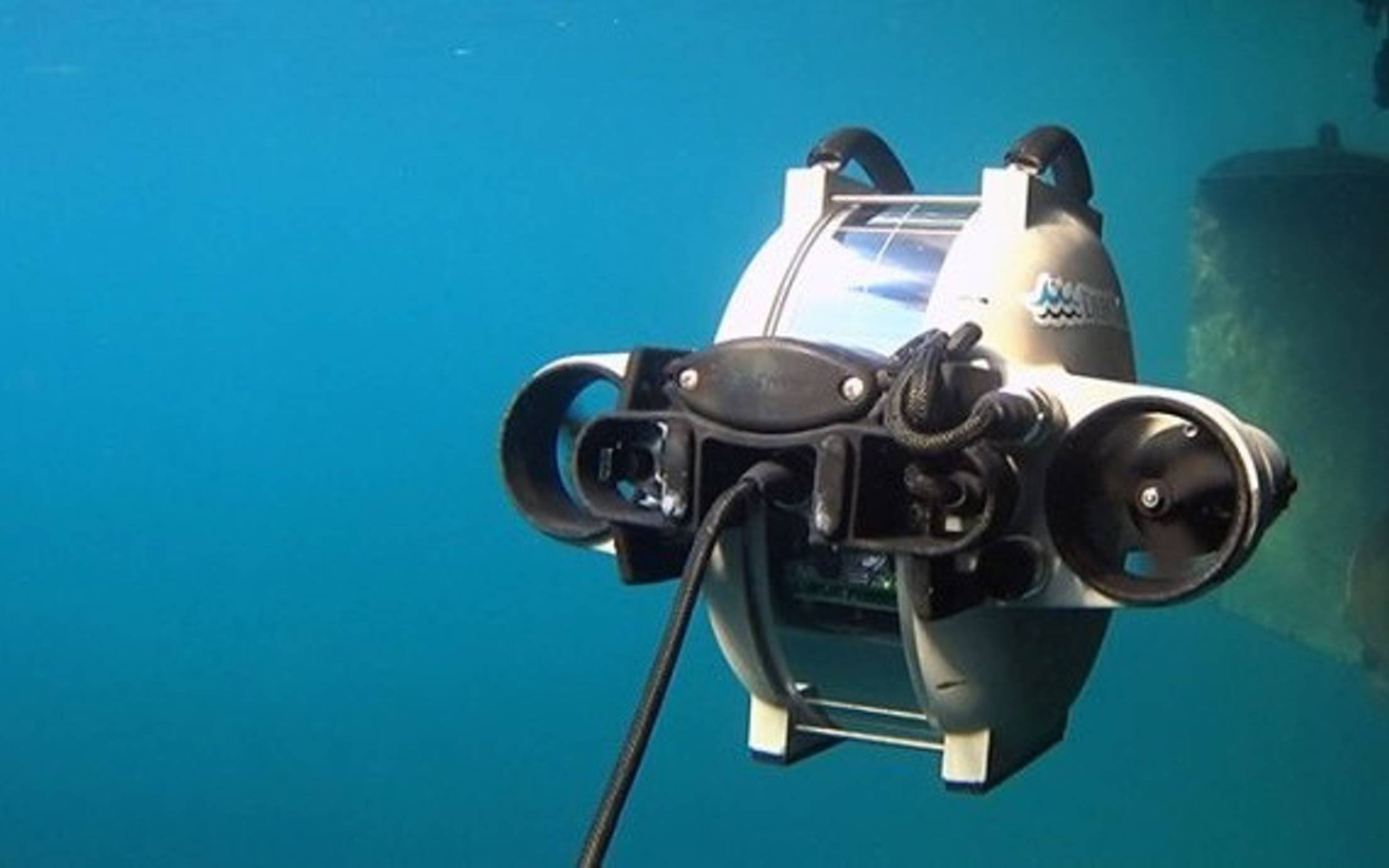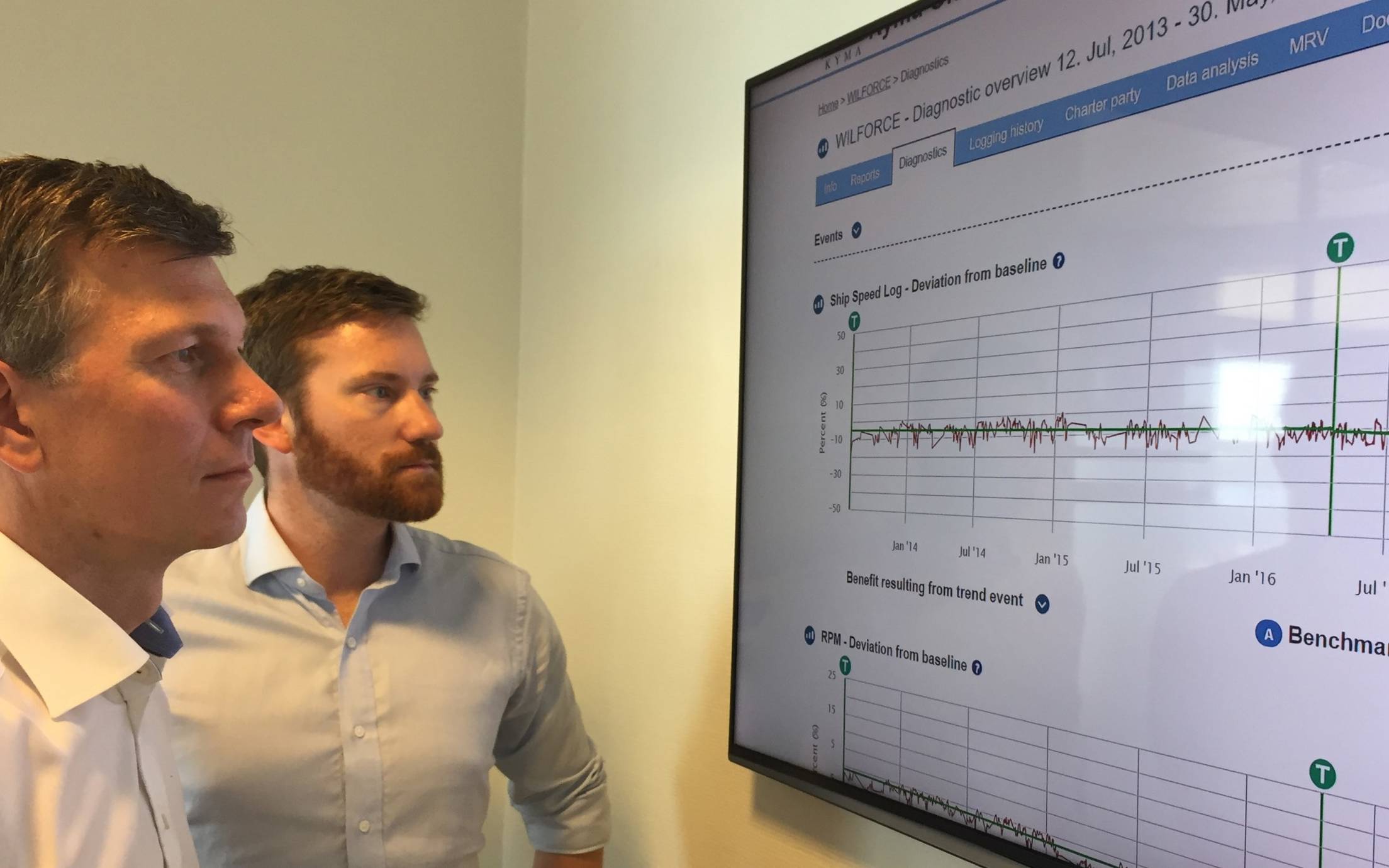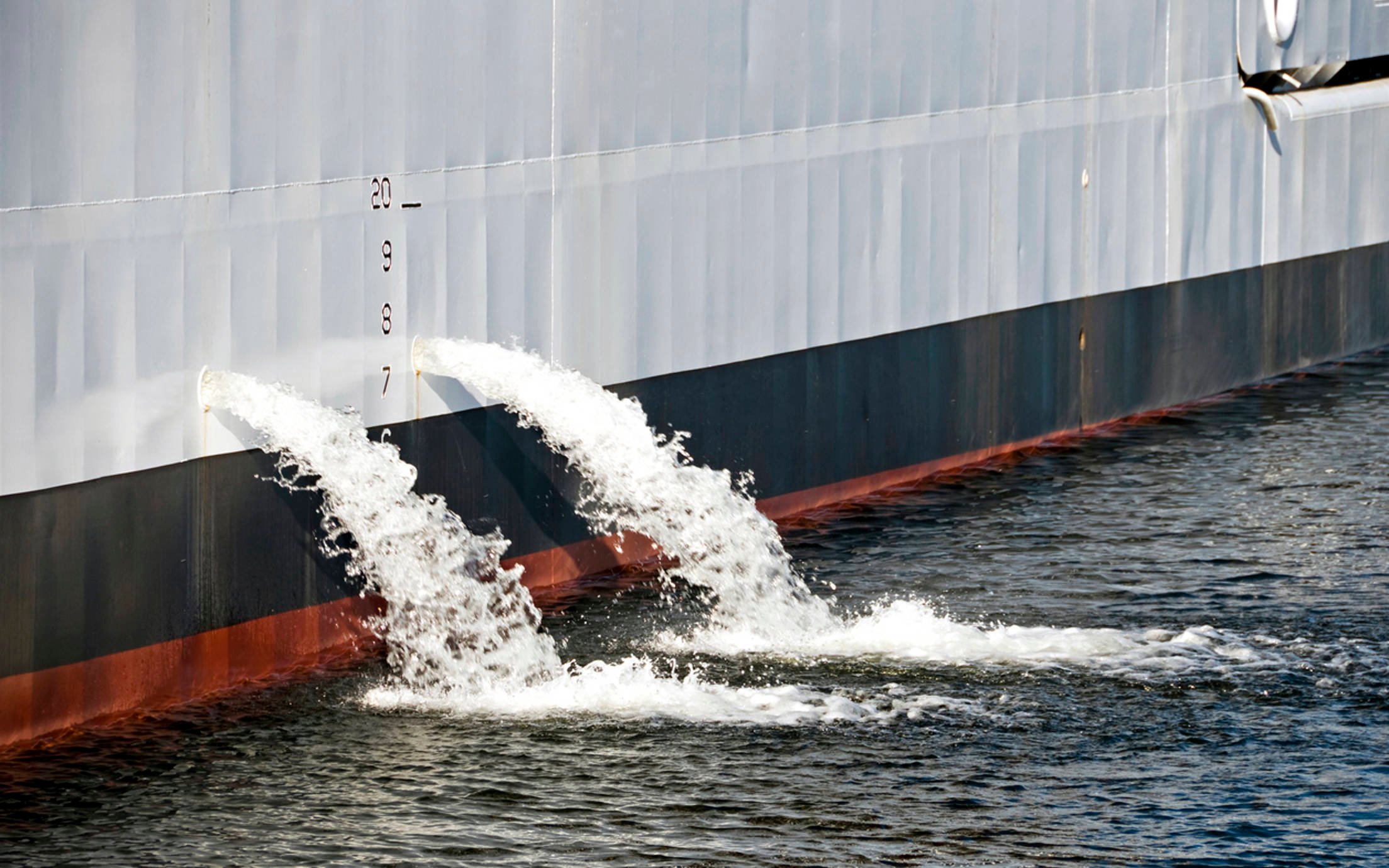
Robots ahead
Underwater robotic cleaning and inspection is set to play a bigger role as owners and operators strive for fuel-efficient, sustainable operations.
Insights

October 26, 2018
Until recently, the shipping industry was largely an analogue operation, relying heavily on traditional methods. With the advent of new technologies such as big data, connectivity and the internet of things, owners and operators are seeing the benefits of digitalisation as they push for greater operational efficiencies and competitive advantage.
A.P.Møller – Maersk, the Danish shipping and energy conglomerate, has been very active in the push for digitalisation of the shipping industry and new ways business is done. The market leader has joined forces with IBM to set up the blockchain platform TradeLens. The open standard platform for global trading and supply chains already has over 90 organisations signed up, including major ports, custom authorities, liner operators and cargo owners.
“The opportunities are enormous,” says CEO Søren Skou, “but so is the possibility of disruption with the emergence of new competitors that were born digital. Our industry must develop new technology and software solutions in open, innovative communities. We need to digitize from the inside of our business, but at the same time, finding the best solutions will require our industry to partner with companies across a wide range of industries.”
Skou’s view is echoed by Thomas Wilhelmsen, CEO of the Wilhelmsen Group. Speaking at the DNB Industry conference in Oslo, Wilhelmsen said, “Our industry must change its traditional, conservative approach. Digitalisation offers great opportunities for efficiencies, growth and innovation. To succeed it is necessary to share knowledge and experiences between companies and industries, to create new ways of working and better customer interfaces and services.”
As part of the Oslo-headquartered company’s commitment to digitalisation, Wilhelmsen has established a digital solutions unit to help transform its way of doing business. An example of its innovative approach is the work its service arm WSS (Wilhelmsen Ships Service) is doing as regards the application of drones in the marine environment. WSS has signed a collaboration agreement with the aviation company Airbus and is currently working on pilot trials to develop automated package delivery systems (shore-to-ship deliveries) with drone technology.
Kongsberg, one of the world’s leading high-tech companies, also has clear priorities to use resources to help companies with their digital transformation. It has established Kongsberg Digital and the Kognifai digital platform to exploit the potential to help make maritime operations more efficient.
“Digitalisation is one of the key focus areas in industry today, and it is changing the way companies work: it’s tearing down walls, changing business models, and it’s happening rapidly,” says Hege Skryseth, President of Kongsberg Digital. Recognised for developing new digital solutions and related technology alliances, Kongsberg predicts technologies such as the internet of things (IOT), big data, automation and robotics will lead to significant changes for the industry.
DNV GL is also playing an integral role in the digital push. The class society has developed an industry platform – Veracity – to facilitate connections between different industry players, domain experts and data scientists. The data platform, built in collaboration with Microsoft Azure, helps maritime and energy industries boost profitability and explore new business models through digitalisation.
“Leading companies are exploring ways to leverage new technologies to improve the safety and productivity of their assets,” said DNV GL – Maritime CEO and former IACS chairman Knut Ørbeck-Nilssen when addressing delegates at the Fleet Transformation Event in London. Ørbeck-Nilssen firmly believes digitalisation, and the use of advanced digital solutions, will play a big role in shipping in the years to come. “Using big data effectively can transform the way the industry works, helping ship owners and operators significantly improve the performance of their fleet, increase the safety of their vessels, reduce operational costs and become more efficient.”
While there is growing consensus that digitalisation is necessary to help transform the shipping industry, some see challenges. Ship owners are naturally cautious when it comes to new technology, and some predict the uptake will take time. Lack of funding and proven return on investment are often cited as barriers. Another main barrier owners have with regard to the adoption of digitalisation is cyber security. Some believe greater connectivity brings greater hacking risks, as witnessed by the spate of high-profile ransomware attacks across various sectors last year.
As Rashid Baba, Chief Commercial Officer at Thuraya, a leading mobile satellite communications company, put it in a recent Asia Shipping Media interview: “Shipping is only just waking up to the potential impact of global connectedness and is some way from feeling the full benefits. But the adjustment is taking place at an increasing pace, not least because attitudes are changing as a generational shift takes place and technology-phobia recedes.”
Despite all the talk of disruption and uberisation, Baba believes shipping is for the most part still at the data gathering stage. “Some leaders began this process sooner and will benefit faster but there are no magic bullets. Even some of the best-known names are working on ways to generate higher levels of efficiency using data, automation and communications to improve their business processes,” opines Baba.
Shipping analyst Martin Stopford of Clarksons Research believes shipping could reap great benefits from the adoption of new digital technologies, but warns the path ahead is far from clear. “There’s every indication that technology is going to get better and better, and more owners are likely to embark on the journey into digitalised smart shipping. The problem is that the business model running through the shipping cycles is not a suitable platform for introducing this new technology. Smart ships, smart fleets and smart global logistics are needed to change this business model,” argues Stopford.
Stopford firmly believes smart shipping has the potential to deliver owners improved performance in practically every part of their business and, in turn, help the industry become more efficient. “It’s not going to be easy but shipping is uniquely well placed to put the digital revolution to work. The industry needs to accept that today’s problems will not be solved by better ships, what’s needed is a better transport system. And shipping will need to be much more efficient than today if it is to service the increase in cargo demand expected in the coming decades,” points out Stopford.
With new technology and ways of doing business, industry experts recognise there is a need for behavioural change in the maritime industry. This naturally has its challenges but is needed if the digital, technical and autonomous elements of the industry are to be integrated successfully argues Inge Sandvik, Chief Digital Officer at Wilhelmsen.
“New regulations, technology and ways of doing business will, for sure, bring challenges but they are needed if the shipping industry is to transform successfully,” says Sandvik, and adds, “To this end, there is a need for a behavioural change in shipping and that’s why the leading companies are making greater use of digitalisation, to create new efficient ways of working and improve customer interfaces.”
Clearly, the number of companies that are embracing digitalisation is growing. For its part, Jotun is working to be at the forefront of using big data efficiently and considers data exchange and digitalisation has the foundation for future partnerships and creating value.
“The shipping industry is changing and will be impacted by new regulations and technologies that aim to ensure that this vital industry is environmentally sound, energy efficient and safe. It’s always difficult to align the interests of different stakeholders, but it is our opinion that we are likely to see more disruption and collaboration as companies sharpen their traditional skills with new high-tech edge to achieve greater efficiencies, market shares and sustainable operations,” concludes Dr. Erik Risberg, Global Marketing Director of Jotun Marine Coatings.

Underwater robotic cleaning and inspection is set to play a bigger role as owners and operators strive for fuel-efficient, sustainable operations.

Technical innovations and energy efficiency are key to achieving sustainable operations argues Awilco technical director Christopher Andersen Heidenreich.

The entry into force of the global treaty to halt invasive aquatic species has led to much debate in the shipping industry as ship owners and operators work to implement the IMO’s ballast water treatment regulation.
A video is being shown
An image is being displayed
A brochure is being displayed